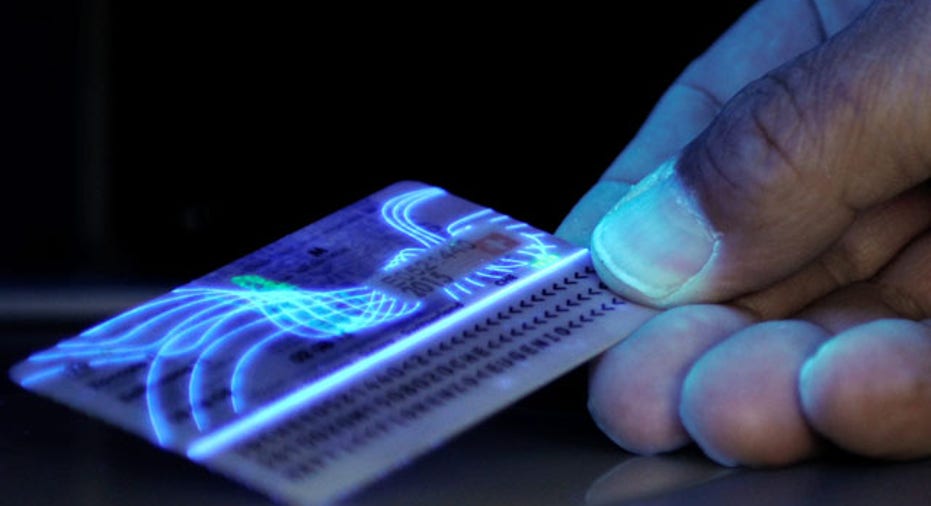How to Protect Your Identity While You're Out of Town

While it’s important to do everything you can to protect yourself from identity-related crime when you’re traveling, it’s equally important to do everything you can to protect your home and the breadcrumbs of your identity that you leave behind.
Every possible kind of identity-related crime exists in a dormant state in your home. In more forms and places and files than you can possibly remember, sensitive personal information stays behind, and only you can protect it.
Identity theft is a pandemic, and it can happen to you or your kids. Depending on how prepared you are, resolution can be as simple as a few phone calls to the identity theft service organization provided by your insurance company, financial services institution or employer, or it can take a lot longer. If you decide to go it alone, bear in mind that it’s no easy task to prove you were scammed to a retailer, a credit reporting agency, a bank investigator, a debt collector, a medical provider, a judge, the IRS or local or federal authorities.
So before you leave for a ride on the EuroRail or hit the links, campground or mountain trail, be sure you aren’t sharing your credit cards, identity, finances or medical files with a stranger.
What Identity Theft Looks Like
Your personally identifiable information is a basic ingredient in all stripes of identity-related crime. In the night kitchen of data crime, it’s flour, and the thief’s ingenuity is the yeast. The rising and baking process happens wherever your information is used to commit fraud — a thief opens up accounts in your name with banks, credit card companies, etc. — and the cooling rack is when a fraudulent account winds up in debt collections.
The latest report from the Federal Trade Commission provides a breakdown of the most common kinds of identity-related crime. Tax and wage-related fraud led the way last year, followed by credit card fraud and a cattle call of other crimes.
Child identity theft is another major worry. Because child ID theft takes advantage of a financial nonentity and monitoring the credit reports of minors isn’t standard practice or even on the radar of most parents, it can take a long time to discover — a fact that fraudsters literally bank on. Their information must be secure at all cost.
Before You Travel
Notify your bank, credit union and credit card providers that you are going away. This will keep your card from being frozen when you attempt to make a purchase or ATM transaction in a place outside your usual flight path. It also might help protect against invasions of your various accounts.
Since caller ID is one authentication factor used by many institutions, if a scammer has access to your home line and some of your records, they may be able to access your cash or credit. Sign up for transactional monitoring programs offered by your financial institutions so that you’re notified any time there is activity in your bank or credit accounts.
Also consider freezing your credit accounts so that no one, including you, can access your credit unless you thaw it.
Make sure the post office and your newspaper delivery service know that you will be out of town, and fill out the proper forms to suspend any deliveries while you are away. Overstuffed mailboxes are thief magnets.
It’s crucial to let your family members, close friends, doctors and lawyers know you will be on vacation. Folks need to know how and where to contact you if there is an emergency.
It’s also a good idea to provide copies of pertinent documents to those you trust in case your sensitive personal information is stolen while you are away. Alternately, you can scan sensitive identification documents like passports and licenses and store them on an encrypted, password-protected thumb drive, which you must keep very close. Then the only issue is remembering the (hopefully) long and strong password you use to access the data it contains.
Tell your home security company that you’ll be out of town, if you use one. They need to be even more sensitive to any activity around your home. If you invite someone to stay there in your absence, alert the security company of their presence.
While You’re Away
There are plenty of strategies you can implement to protect your home while you’re away. Set lights on timers or find a trusted house sitter. But bear in mind, a significant percentage of identity thieves are related to or know the victim well.
Regardless if there is someone staying there or not, make sure that every document containing sensitive personal information is filed in a completely secure environment (for example, a safe) or in a safe deposit box at your bank. While this should be part of your normal best practices, it is even more important when you are not around.
If you have reason to believe you’ve been a victim of fraud, be sure to monitor your credit for signs of identity theft. You can view your free credit report summary, updated each month, on Credit.com.
While doing these things may seem like a great deal of work at a time when your head is in vacation mode, don’t forget that no one has a greater interest in your personal and financial security than you.



















